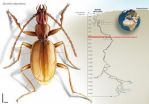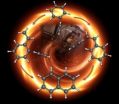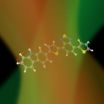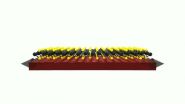(Press-News.org) The risk of developing cancer increases with age. Factors like smoking and regular aspirin use also affect the risk of cancer – although in the opposite sense. Researchers from the University of Basel were now able to show that aspirin use and smoking both influence aging processes of the female genome that are connected to colorectal cancer. The Journal of the National Cancer Institute has published their results.
Already in the 1990s, scientists discovered that regular use of aspirin over long periods of time decreases the cancer risk. Since then, numerous studies have confirmed the protective effect of the drug against different types of cancer. Regular aspirin use is said to reduce the risk to develop colorectal cancer by an average of 40%. However, it is unknown how exactly the drug influences the cancer risk.
A research group led by Prof. Primo Schär, molecular geneticists at the Department of Biomedicine from the University of Basel and gastrointestinal specialist PD Dr. Kaspar Truninger, has now discovered a possible mechanism of how aspirin decreases the risk of cancer: It slows down certain aging processes of the genome - namely modifications that also play an important role in the development of tumors.
In order to analyze the relationships between lifestyle and genome aging, the researchers examined intestinal tissue samples of 546 healthy women over 50 years of age. They compared age-specific changes of gene markers, so-called DNA methylations, with the women's lifestyle factors regarding aspirin use, smoking, body mass index and hormonal replacement therapy. The most significant effects were measured for aspirin use and smoking.
Aging Markers
"Each cell's genome resembles a library that is full of bookmarks", explains Schär. Thanks to these bookmarks, the cells know which genes to read, so that they can fulfill their specialized tasks as skin, muscle or intestinal cells. "But these markers are not very stable and change during the course of age. If, at certain parts of the genome, the change is to drastic, tumors can develop", says Schär.
In this study, the researchers were able to show for the first time that this age-related decay of gene markers can be slowed down by the regular use of aspirin. Smoking on the other hand, accelerates the aging process. "Especially affected are genes that also play a role in the development of cancer", says Dr. Faiza Noreen, research associate at the Department of Biomedicine from the University of Basel and first author of the study.
Truninger emphasizes that it would be premature to start taking aspirin solely for cancer prevention without consulting a doctor first – especially when regarding the potential side effects such as gastrointestinal bleeding.
INFORMATION:
Original source:
Noreen F, Röösli M, Gaj P, Pietrzak J, Weis S, Urfer P, Regula J, Schär P and Truninger K.
Modulation of Age- and Cancer Associated DNA Methylation Change in the Healthy Colon by Aspirin and Lifestyle.
http://jnci.oxfordjournals.org/content/106/7/dju161.abstract?keytype=ref&ijkey=38YYakhjbDBLTUN
Journal of the National Cancer Institute published online, 2014 106 (4): dju161
doi: 10.1093/jnci/dju161
Cancer risk: Aspirin and smoking affect aging of genes
2014-07-01
ELSE PRESS RELEASES FROM THIS DATE:
Analysis of the Chinese facial profile: Contours of the side face in the Tu & Zang ethnic minorities
2014-07-01
Li Haijun and fellow researchers at Minzu University of China, in Beijing, conducted a series of geometric morphometric analyses of the contours of the side face and variations in the Tu and Zang (Tibetan) ethnic minorities from Qinghai Province, in northwestern China.
Their study, entitled "Morphometric analysis of the Chinese facial profile: Contours of the side face and variations in the Tu and Zang ethnic minorities", was published (in Chinese) in the Chinese Science Bulletin, 2014, Vol 59(16).
The team of researchers used advanced digital cameras and image processing ...
A Spaniard and a Portuguese discover a new species of beetle in the world's deepest cave
2014-07-01
The unusual habitat of the Krubera cave in the Western Caucasus remains a mystery. Researchers from two Spanish universities have discovered a new species of beetle in the depths of this cave.
Cave beetles are one of the most iconic species found in subterranean habitats. They were historically the first living organisms described by science that are adapted to the conditions of hypogean or subterranean life.
Now, a Portuguese scientist and a Spaniard have discovered a new species of beetle in the deepest cave known to man; a cave 2,140 metres deep. It is the Krubera ...
Scientists uncover the key to adaptation limits of ocean dwellers
2014-07-01
The simpler, the more heat-resistant – scientists uncover the key to adaptation limits of ocean dwellers
Bremerhaven, Germany, 1 July 2014. The simpler a marine organism is structured, the better it is suited for survival during climate change. Scientists of the Alfred Wegener Institute, Helmholtz Centre for Polar and Marine Research discovered this in a new meta-study, which appears today in the research journal Global Change Biology. For the first time biologists studied the relationship between the complexity of life forms and the ultimate limits of their adaptation ...
The biology of addiction risk looks like addiction
2014-07-01
Philadelphia, PA, July 1, 2014 – Research suggests that people at increased risk for developing addiction share many of the same neurobiological signatures of people who have already developed addiction. This similarity is to be expected, as individuals with family members who have struggled with addiction are over-represented in the population of addicted people.
However, a generation of animal research supports the hypothesis that the addiction process changes the brain in ways that converge with the distinctive neurobiology of the heritable risk for addiction. In other ...
In study of individual neuron activity, key brain region responds to subjective perception
2014-07-01
LOS ANGELES (June 30, 2014) – When evaluating another person's emotions – happy, sad, angry, afraid – humans take cues from facial expressions. Neurons in a part of the brain called the amygdala "fire" in response to the visual stimulation as information is processed by the retina, the amygdala and a network of interconnected brain structures. Some of these regions respond just to the actual features of the face, whereas others respond to how things appear to the viewer, but it is unknown where in the brain this difference arises.
Although the amygdala's importance in ...
Up in flames: Evidence confirms combustion theory
2014-07-01
Researchers at the Department of Energy's Lawrence Berkeley National Lab (Berkeley Lab) and the University of Hawaii have uncovered the first step in the process that transforms gas-phase molecules into solid particles like soot and other carbon-based compounds.
The finding could help combustion chemists make more-efficient, less-polluting fuels and help materials scientists fine-tune their carbon nanotubes and graphene sheets for faster, smaller electronics. In addition, the results could have implications for the burgeoning field of astrochemistry, potentially establishing ...
Study finds online bullying creates off-line fear at school
2014-07-01
HUNTSVILLE, TX (7/1/14) -- Cyberbullying creates fear among students about being victimized at school, a recent study by Sam Houston State University found.
While traditional bullying still creates the most fear among students, cyberbullying is a significant factor for fear of victimization at school among students who have experienced bullying or disorder At school, such as the presence of gangs. The fear from cyberbullying is most prominent in minority populations.
"It cannot be overstated – online victimization has offline consequences, and those consequences may ...
Scientists discover how plastic solar panels work
2014-07-01
This news release is available in French.
Scientists don't fully understand how 'plastic' solar panels work, which complicates the improvement of their cost efficiency, thereby blocking the wider use of the technology. However, researchers at the University of Montreal, the Science and Technology Facilities Council, Imperial College London and the University of Cyprus have determined how light beams excite the chemicals in solar panels, enabling them to produce charge. "Our findings are of key importance for a fundamental mechanistic understanding, with molecular ...
Stanford engineers envision an electronic switch just 3 atoms thick
2014-07-01
VIDEO:
This animation shows the three-atom thick crystal being pulled from a non-conductive to conductive state, and then being pushed back to the non-conductive state.
Click here for more information.
Do not fold, spindle or mutilate. Those instructions were once printed on punch cards that fed data to mainframe computers. Today's smart phones process more data, but they still weren't built for being shoved into back pockets.
In the quest to build gadgets that can survive such ...
Updated guidelines covering fusion procedures for degenerative disease of the lumbar spine
2014-07-01
Charlottesville, VA (July 1, 2014). Experts in the spine surgery community—neurosurgeons and orthopedic surgeons—banded together to evaluate the recent literature on lumbar spine fusion procedures and to publish up-to-date evidence-based recommendations on their use. The Journal of Neurosurgery: Spine is pleased to announce today's publication of the American Association of Neurological Surgeons/Congress of Neurological Surgeons Joint Section on Disorders of the Spine and Peripheral Nerves' updated guidelines for the performance of fusion procedures for degenerative disease ...





